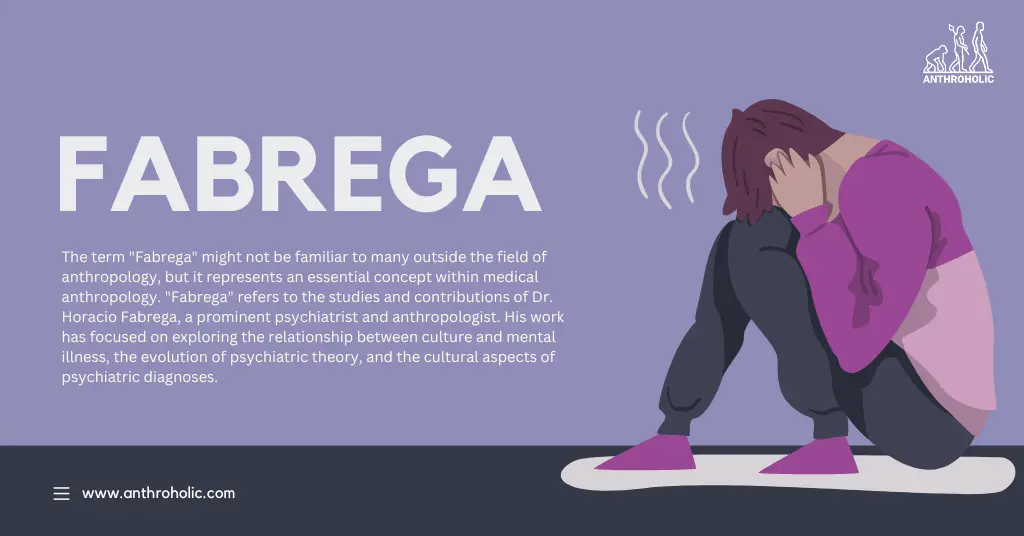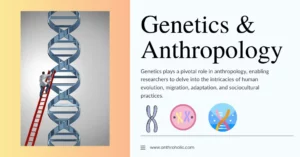AI Answer Evaluation Platform Live Now. Try Free Answer Evaluation Now
Fabrega
The term “Fabrega” might not be familiar to many outside the field of anthropology, but it represents an essential concept within medical anthropology. “Fabrega” refers to the studies and contributions of Dr. Horacio Fabrega, a prominent psychiatrist and anthropologist. His work has focused on exploring the relationship between culture and mental illness, the evolution of psychiatric theory, and the cultural aspects of psychiatric diagnoses.

Fabrega’s Background and Academic Contributions
Early Life and Education
- Born: 1930
- Education: MD from Tulane University
- Field of Interest: Psychiatry and Anthropology
Research Interests
- Culture and Mental Illness: Fabrega’s extensive research in this area has opened new horizons for understanding how different cultures perceive mental illness.
- Psychiatric Evolution: Analyzing the historical development of psychiatric theories.
- Cultural Psychiatry: Integrating cultural aspects into psychiatric diagnoses.
Publications
Fabrega has authored various influential books and articles, some of the notable ones being:
- “Cultural Psychiatry: International Perspectives” (2001)
- “Psychiatric Stigma in Non-Western Societies” (1991)
Theories and Approaches
Culture and Mental Illness
Fabrega’s approach to understanding mental illness through cultural lens involves several intricate components:
- Cultural Interpretation of Symptoms:
- Understanding: Different cultures have unique ways of recognizing and describing mental illness symptoms.
- Expression: How symptoms are manifested and communicated varies across cultures.
- Treatment: Cultural beliefs influence the treatment approaches and acceptance of medical interventions.
- Case Studies: Fabrega’s analysis includes diverse cases such as depression in Japan or schizophrenia in India, providing a broad perspective [1].
- Social Stigma:
- Community Beliefs: Fabrega explores how societal norms and values shape the perception of mental illness.
- Impact on Patients: Stigma affects not only the patient but also their families and the community at large.
- Interventions: Fabrega’s work has inspired strategies to combat stigma through education, awareness, and culturally sensitive care.
Psychiatric Evolution
This theory encompasses several key facets:
- Historical Perspective:
- Ancient Views: Fabrega traces mental illness back to ancient civilizations, examining their interpretations and treatments.
- Medieval to Modern Transition: How psychiatric care evolved from religious and supernatural explanations to scientific understandings.
- Impact of Technology and Science: The role of medical advancements in shaping current psychiatric practices.
- Modern Influence:
- Societal Norms: How current societal beliefs and norms influence the field of psychiatry.
- Legal and Ethical Considerations: The ethical implications of psychiatric diagnoses and treatments in contemporary society.
- Global Perspectives: Comparison of psychiatric practices across different countries and cultures.
Cultural Psychiatry
Fabrega’s work in cultural psychiatry involves:
- Integration of Culture in Diagnosis:
- Cultural Assessment: Including cultural background in psychiatric assessments to provide more nuanced care.
- Culturally Informed Treatment Plans: Creating treatments that consider cultural values, beliefs, and practices.
- Training and Education: Preparing mental health professionals to be culturally competent [2].
- Cultural Bound Syndromes:
- Definition and Exploration: Fabrega has explored syndromes specific to particular cultures, such as Hikikomori in Japan or Ataque de Nervios in Latin America.
- Underlying Causes: Investigating the social, cultural, and sometimes even ecological factors leading to these syndromes.
- Treatment Approaches: Developing treatments that respect and integrate cultural understanding.
Impact and Legacy
Influence on Medical Anthropology
Fabrega’s work has significantly shaped the field of medical anthropology by:
- Bridging the Gap: Integrating anthropology and psychiatry.
- Encouraging Cross-cultural Studies: Inspiring new research in different cultural contexts.
Criticisms
Some critiques of Fabrega’s work include:
- Overemphasis on Cultural Factors: Some argue that the focus on cultural aspects can overshadow biological factors in mental illness [3].
- Generalizations: Certain generalizations may not apply to all cultures.
Conclusion
The work of Dr. Horacio Fabrega in the field of medical anthropology provides a deep insight into the relationship between culture and mental health. His theories and approaches not only enrich the understanding of mental illness from a cultural perspective but also offer a broader context for psychiatric diagnoses. Though not without criticisms, Fabrega’s contributions undoubtedly add essential dimensions to both anthropology and psychiatry.
References
[1] Fabrega, H. (2007). Culture and History in Psychiatric Diagnosis and Practice. Journal of Nervous and Mental Disease, 195(6), 515-519.
[2] Fabrega, H. (1990). The Role of Culture in a Theory of Psychiatric Illness. Social Science & Medicine, 31(2), 127-136.
[3] Kleinman, A. (1988). Rethinking Psychiatry: From Cultural Category to Personal Experience. New York, NY: Free Press.




